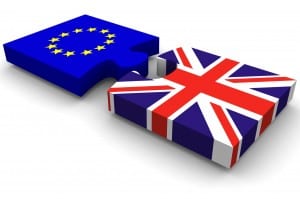Could Brexit lead to Frexit – or Czexit?
By yjmsgi3, on 10 May 2016
By Dr Sean Hanley – Senior Lecturer in Comparative Central and East European Politics
This post reproduced with author’s permission
A powerful coalition of forces – ranging from the driest of conservatives to Greens and the radical left and taking in big business, trade unions, churches and universities – has come together to underline the negative economic, social and political consequences of Brexit.
The UK leaving the EU, it is argued, will not only do lasting damage the country’s economic prospects and political influence, but could have wider repercussions and might even cause the Union to start unravelling.
This is not simply a matter of absorbing a mighty economic shock, the complexities of negotiating the terms of Brexit, or the umpredictable effects of a sharply changed balance of forces within a downsized Union – the greater weight of Eurozone vis-a-via the non-Eurozone, for example – but the new political dynamics that might take hold.
Some have argued that, emboldened by the example of Brexit, eurosceptics across the EU, will start to push for the exit option, triggering a kind of ‘domino effect’. Writing for France Inter. Bernard Guetta gloomily takes for granted that post-Brexit
… so many politicians and political parties would follow headlong down this route to get a slice of the action. The pressure for similar referendums would arise all over Europe. The defenders of the European ideal would find themselves on the defensive. In such a crisis it would be very difficult to rebuild the EU.
Available evidence does suggest potential for such a process. Polling by Ipsos Mori shows high public demand for referendums on EU membership in with significant minorities France (41%), Sweden (39%) and Italy (48%). favouring withdrawal. Other polling even suggested that post-Brexit a majority of Swedes would support exiting the EU.
French, Dutch and Danish electorates do have experience of rejecting EU treaties in referendums – with voters in the Netherlands getting further practice in last month’s referendum on EU-Ukraine trade deal, whichsome see a dry run for a Nexit vote.
And demands for exit from the EU – or referendums about it – have been raised by expanding parties of the populist right pushing their way towards power: Geert Wilders’s Freedom Party in Holland advocates Nexit, while French Front National plans to organise a referendum on Frexit within six months of coming to power.
FN leader Marine Le Pen, who relishes the idea of becoming Madame Frexit, also recommends that every EU member should have one (although her offer to visit the UK and help out the Brexit campaign has been abruptly turned down).
The Danish People’s Party, once regarded as on the radical right, but now considered respectable and modernised enough to sit with the British Tories in the European Parliament, is pondering the idea of pushing for a referendum Dexit (Daxit?).
The logic of such exit options among richer states seems to similar the case now being made by UK Brexiteers: that wealthy West European states might be economically strong enough to make it – and perhaps even thrive – in (semi-) detached relationship with (what remains of) the EU, trading economic some losses for sovereignty and the freedom to follow immigration and welfare policies tailored to national requirements.
Domino effect

Photo: All lined up (license)
There even been reports that some Central and East European countries might be in the line to exit the Union they joined little over a decade ago. In February Czech Republic’s deputy minister for European Affairs, Tomáš Prouza, told reporters that Brexit could push Czexit onto the political agenda for his country’s eurosceptic conservatives and hardline Communists.
And to some extent he has a point. Czechia’s mercurial President Miloš Zeman, although himself a eurofederalist firmly in favour of EU membership, thinks Czech voters should have their say in a Czexit referendum. The Czech parliament recently voted to discuss a resolution on a Czexit referendum proposed by the populist Dawn grouping (but ran out of parliamentary time to do so).
Despite this Mr Prouza and his boss Czech prime minister Bohuslav Sobotka were probably laying on the Brexopocalypse rhetoric rather too thick. Having flirted with rejection of EU membership in the to accession in 2004, both the conservative Civic Democrats (ODS) and Communists had reconciled themselves to membership of Union, while hoping to steer it in a political direction more in tune with their visions of European integration and Czech statehood some time in the future.
And, while there is plenty of scepticism about the EU across the CEE region – polls, for example, show a majority of Czechs deeply sceptical about the future of the European project and opposed to the adopting the Euro – as in Western Europe ‘hard euroscepticism’ has been the province parties of the radical right and left. It is hard to find any out-and-out outers in the region.
For poorer, economically less robust newer member states EU membership was not only the best option for economic development, but a civilisational choice confirming their ‘Return to Europe’ and status as fully fledged democracies.
And while the Brexit referendum is a contest between two (semi-)plausible futures both of which draw high levels of public support – centring a debate over the trade-offs between economic growth and recovered sovereignty – CEE states have no credible economic options outside the Union.
For this reason, ‘hard’ Eurosceptics in the region have often been big on critique and vision but quiet on concrete proposals for getting their countries out of the Union. Instead their implicit hope seems to be that eurosceptic and anti-federalist coalitions prepared to roll back integration – either between governments or parties – will emerge, or that the European Union would suffer a sudden collapse, leaving CEE societies, as in 1918, to make a break for national independence amid the rubble.
 Close
Close





